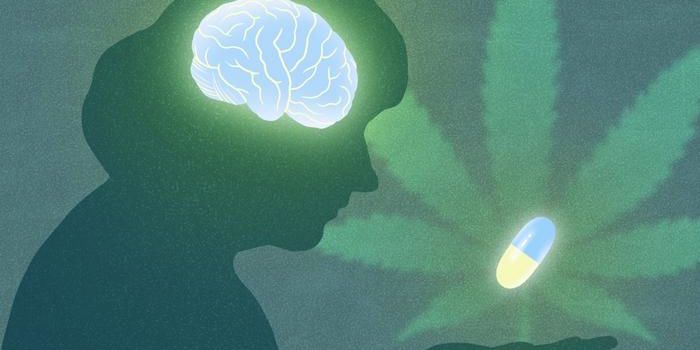Which COVID vaccine and booster are right for me?

Skepticism about the vaccine has remained unusually high, even after study upon study has shown that vaccines, and booster shots, are safe and effective in preventing COVID-19 related serious illness or death. Skeptics, however, are quick to point out that some studies have shown that the COVID-19 vaccines can lead to allergic reactions, inflammation of the heart muscles, and other cardiovascular issues. However, vaccines and booster shots are an important step to end the fight against the COVID-19 pandemic. But which vaccine and booster shot are the best for you and your family? Below is an outline of the current vaccines and booster shots currently available in the United States.
The United States Centers for Disease Control (CDC) has recommended everyone aged 5 years and older to receive a COVID-19 vaccination, and has recommended booster shots for individuals aged 16 years and older. Currently however, only the Pfizer-BioNTech vaccine is approved for use in children aged 5-17.
Pfizer-BioNTech Vaccine
The Pfizer-BioNTech vaccine is similar to the Moderna vaccine (described below) in that they are both mRNA vaccines. The Pfizer-BioNTech vaccine was developed by the biotechnology company BioNTech, with clinical trial, logistic, and manufacturing support from the pharmaceutical giant Pfizer. The vaccine is composed of a lipid nanoparticle which contains mRNA that encodes for the spike protein on the SARS-CoV-2 virus. When the vaccine enters the body, a harmless spike protein is manufactured by our cells. Then our innate immune system recognizes the spike protein as a foreign object and begins to produce antibodies against the spike protein to destroy it. After this process, our bodies have now created the ability to recognize and destroy the spike protein on the SARS-CoV-2 virus such that if we are infected with the virus in the future, our immune system will already have built protection against it and can quickly destroy the virus and prevent us from becoming sick with the COVID-19 disease.
Recommendations: The Pfizer-BioNTech vaccine is recommended for children and adults aged 5 years and older. The dosing regimen for Pfizer-BioNTech vaccine consists of two initial shots, 21 days apart, and a single-shot booster dose six months after the second initial dose.
Effectiveness: The Pfizer-BioNTech vaccine is highly effective at preventing serious illness and death from COVID-19. A study from the CDC found that the Pfizer-BioNTech vaccine was 88% effective at preventing COVID-related hospitalizations and produced a similar amount of antibodies compared to the Moderna vaccine. Both of these findings outweigh the benefits of the Johnson & Johnson vaccine. Additionally, the effectiveness of Pfizer and Moderna at preventing serious illness and death has caused the CDC to recommend that individuals be vaccinated and boosted with either of these mRNA vaccines over the Johnson & Johnson vaccine.
Moderna Vaccine
As stated above, the Moderna vaccine follows a similar design as that of the Pfizer vaccine. This vaccine was developed by the U.S. based pharmaceutical and biotechnology company Moderna, Inc. The vaccine, like the Pfizer vaccine, is also a lipid nanoparticle which contains mRNA that encodes for the spike protein on the SARS-CoV-2 virus. This design allows the vaccine to help the body’s immune system develop effective antibodies against SARS-CoV-2.
Recommendations: The Moderna vaccine is recommended for adults aged 18 years and older. The dosing regimen for Moderna vaccine consists of two initial shots, 28 days apart and a single-shot booster dose six months after the second initial dose.
Effectiveness: A study by the CDC published in September 2021, showed that the Moderna vaccine was most effective at preventing COVID-19 related hospitalizations compared to both the Pfizer-BioNTech and the Johnson & Johnson vaccine. That study showed that Moderna was 93% effective at preventing hospitalizations compared to 88% with Pfizer and 71% with Johnson & Johnson. Moderna has also proven to be very effective as a booster shot. A recent study, pending peer-review, found that in people who initially received a Johnson & Johnson vaccine and then received a Moderna booster showed an almost 50-fold increase in antibody levels compared to individuals who received a Johnson & Johnson booster. As stated above, the CDC has recently recommended that individuals receive either the Moderna or Pfizer-BioNTech vaccine instead of the Johnson & Johnson vaccine, when available.
Johnson & Johnson Vaccine
The Johnson & Johnson vaccine was developed by the Belgian pharmaceutical company Janssen Pharmaceuticals, which is owned by the multinational corporation Johnson & Johnson. It was designed differently than the Pfizer and Moderna vaccines and more closely resembles classic viral vaccines, like the yearly flu shot. As such, the Johnson & Johnson vaccine was designed using a modified, inactive version of a virus that can be utilized to create antibodies against the SARS-CoV-2 virus. A major benefit of the Johnson & Johnson vaccine is that, unlike its mRNA counterparts, the Johnson & Johnson vaccine requires only a single initial dose. This is a major benefit for individuals who are unable to travel easily or who don’t have easy access to healthcare sites.
Recommendations: The Johnson & Johnson vaccine is recommended for adults aged 18 years and older. The dosing regimen for the Johnson & Johnson vaccine consists of one initial shot, and a single-shot booster dose given two months after the initial dose. It should be noted that, while approved by the FDA, the CDC recently recommended either the Pfizer or Moderna mRNA vaccines over the Johnson & Johnson vaccine due to "the latest evidence on vaccine effectiveness, vaccine safety and rare adverse events..."
Effectiveness: As described earlier, the Johnson & Johnson vaccine was 71% effective at preventing hospitalizations when compared to unvaccinated individuals. Additionally, data provided from the company shows that individuals who receive the Johnson & Johnson vaccine and booster shot showed a 94% protection against symptomatic COVID-19 compared to unvaccinated individuals. However, additional data appear to show that a booster with an mRNA vaccine two-weeks after the initial Johnson & Johnson vaccine may provide greater protection against COVID-19 when compared to a Johnson & Johnson booster.
Important Takeaways
Overall, the data from many clinical trials and epidemiologically show that any of the three available vaccines in the United States provide exceptional immunity against COVID-19 and greatly reduce the risk of serious illness and death. While the CDC has recommended the mRNA vaccines, Pfizer-BioNTech and Moderna, over the Johnson & Johnson vaccine, situational and regional matters may require that individuals receive the Johnson & Johnson vaccine, which also provides protection against COVID-19.
Regarding booster shots, an mRNA booster may provide the best immunity for individuals who received the Johnson & Johnson vaccine. Additionally, a recent study found that most individuals who received the initial Moderna vaccines also received the Moderna booster shot, and a similar trend was found for individuals who received the Pfizer-BioNTech vaccine. As such, it is clear that vaccines save lives and people who have questions on which vaccine and boosters shots to get should talk to their healthcare providers.
Source: Brookings Institute; Vogue; UNICEF; Pew Research; Journal of International Consumer Marketing; New York Times; Centers for Disease Control (CDC); The Economist; New England Journal of Medicine (NEJM); NEJM; Journal of the American Medical Association (JAMA); JAMA; NEJM; CDC; United Nations; CDC; medRxiv; FDA; NBC News




















































